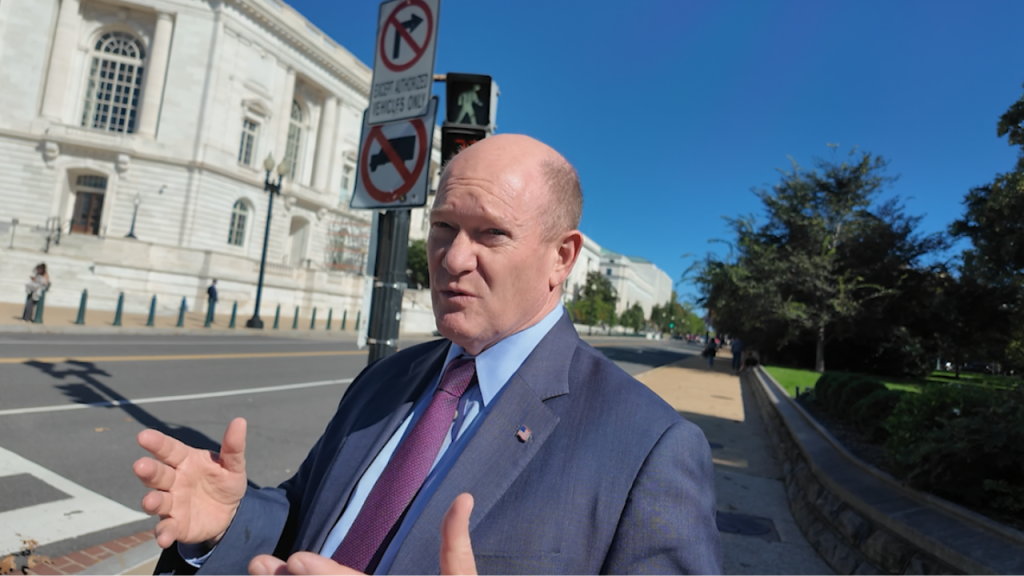Democrats and Republicans Clash Over Obamacare Subsidies as Government Shutdown Continues
In the midst of the ongoing government shutdown that began at the start of the month, a fundamental disagreement over Obamacare tax credits has emerged as the central point of contention between Democrats and Republicans. The enhanced premium tax credit subsidies, originally expanded during the COVID-19 pandemic to help Americans afford health insurance during uncertain times, are set to expire at the end of 2025. Democrats have made extending these credits a non-negotiable condition for supporting any spending package to reopen the government, while Republicans view the scheduled sunset as an opportunity to reduce government spending and address the national deficit. This standoff has resulted in Democrats voting against reopening the government ten times since the shutdown began, as they insist that millions of Americans could lose access to affordable healthcare without the continuation of these subsidies.
When confronted with questions about how extending these subsidies would impact the national deficit, Democratic senators have either avoided addressing the fiscal implications directly or disputed the framing of the issue. Senator Chris Coons of Delaware explicitly disagreed with characterizing the extension as a “deficit increase,” while others like Senator Alex Padilla of California declined to comment altogether. Democrats have instead emphasized the human cost of allowing the subsidies to expire, with Senator Coons warning that “literally millions of Americans” would no longer be able to afford their health insurance or would lose coverage entirely. This sentiment was echoed by Senator Mazie Hirono of Hawaii, who simplified the Democrats’ position as: “Republicans need to restore healthcare to the American people.” Their stance is bolstered by findings from KFF, a healthcare policy think tank, which indicates that over 90% of the 24 million Obamacare enrollees currently utilize these enhanced credits.
Republicans, however, have pushed back against this characterization, pointing out that the credits were always intended to be temporary and that Democrats themselves included the sunset provision in the original legislation. Senator John Curtis of Utah described the situation as a “pre-determined crisis by the Democrats,” noting, “They’re the ones who put the expiration date on these.” This viewpoint is shared by Senator John Boozman of Arkansas, who emphasized that the expansion was specifically implemented because of the pandemic, which is now over. Boozman expressed particular concern about high-income individuals receiving subsidies, stating, “You’ve got people making $300,000 on a subsidy.” Republicans maintain that the government should be reopened first, after which discussions about healthcare subsidies can follow in a less pressured environment.
The fiscal impact of extending these subsidies is substantial, according to the Committee of a Responsible Federal Budget, a nonpartisan fiscal policy think tank, which estimates the cost at upwards of $30 billion annually. This significant expense is at the heart of Republican resistance, as they view the expiration as aligned with their broader goals of returning government spending to pre-COVID levels and reducing the national deficit. The political dynamics in the Senate make this standoff particularly consequential, as Republicans need at least seven Democrats to advance spending legislation in order to overcome the 60-vote filibuster threshold. With Republicans holding 53 seats in the chamber, Democrats have significant leverage in these negotiations, which they are using to push for the extension of healthcare subsidies.
Some moderate voices on both sides of the aisle have acknowledged the complexity of the situation and the potential for compromise. Senator Lisa Murkowski, a Republican from Alaska who has cautioned against sudden shifts to healthcare programs, expressed frustration at the lack of progress in finding a solution that ensures continued healthcare coverage for Americans. Her concern reflects a recognition shared by some lawmakers that abruptly ending subsidies could create real hardship for many citizens, even as they worry about the fiscal implications of extending them indefinitely. Other senators have hinted at ongoing negotiations but have been reluctant to discuss details publicly, with Senator Mike Crapo of Idaho stating he wouldn’t engage in such discussions “until the Democrats open the government.”
As both chambers of Congress left Washington, D.C. for the weekend, with the Senate set to return on Monday, the path forward remains uncertain. The fundamental disagreement over Obamacare subsidies represents more than just a policy dispute—it reflects deeply different priorities regarding the role of government in healthcare and fiscal responsibility. Democrats emphasize protecting access to affordable healthcare for millions of Americans, while Republicans focus on reducing government spending and addressing the national deficit. This ideological divide, combined with the practical political considerations of needing bipartisan support to pass spending legislation, has created a challenging impasse. The resolution will likely require some form of compromise that addresses both the immediate need to reopen the government and the longer-term questions about healthcare subsidies and fiscal responsibility that have brought the nation to this point.














